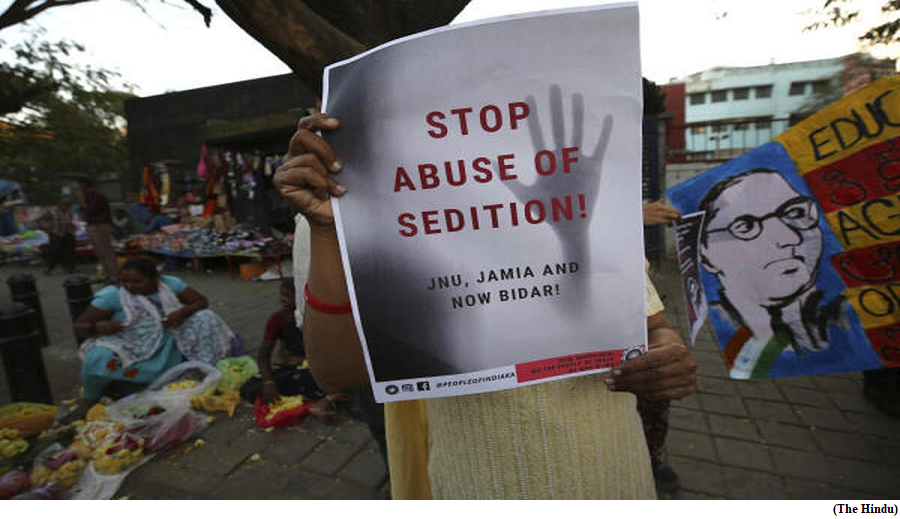SFC carries out successful training launch of Agni 1 ballistic missile (GS Paper 3, Science and Tech)

Why in news?
- India recently carried out a successful training launch of the Agni-1 ballistic missile that validated all operational and technical parameters of the strategic weapon.
- The Strategic Forces Command (SFC) carried out the missile launch from APJ Abdul Kalam Island in Odisha.
Outcome:
- The missile is a proven system, capable of striking targets with a very high degree of precision.
- The user training launch successfully validated all operational and technical parameters of the missile.
Agni series:
- In the last two decades, India has been focusing on enhancing its strategic deterrent capability by developing various ballistic missiles, precision-guided munitions and related platforms.
- India has developed various variants of the Agni series of missiles.
- In December 2022, India successfully test-fired nuclear-capable ballistic missile Agni-V that can strike targets at ranges up to 5,000 km.
- The Agni 1 to 4 missiles have ranges from 700 km to 3,500 km and they have already been deployed.
- In April, India successfully carried out the maiden flight trial of an endo-atmospheric interceptor missile from a ship off the coast of Odisha in the Bay of Bengal as part of its ambitious ballistic missile defence programme.
Significance:
- The purpose of the trial of the sea-based missile was to engage and neutralize a hostile ballistic missile threat, thereby elevating India into an elite club of nations having such a capability.
- The BMDs are capable of intercepting incoming long-range nuclear missiles and hostile aircraft including AWACS (airborne warning and control systems).
- India has been developing capabilities to intercept hostile ballistic missiles both inside and outside the earth's atmospheric limits.
Sedition law can be retained but with safeguards, Law Commission
(GS Paper 2, Governance)
Why in news?
- The Section 124A of the Indian Penal Code (IPC) dealing with sedition needs to be retained but certain amendments could be made for greater clarity regarding its usage, the 22nd Law Commission has said in its recent report.
- The commission said sedition being a “colonial legacy” is not a valid ground for its repeal but in view of the misuse of Section 124A, the panel has recommended that the Centre issue model guidelines to curb any misuse.

Term of reference:
- The Law Commission received a reference from the Home Ministry through a letter dated March 29, 2016, addressed to the Department of Legal Affairs in the Law Ministry for a study of the usage of the provision of Section 124A and suggest amendments.
Observations by Law Commission:
- The Law Commission said the existence of laws such as Unlawful Activities (Prevention) Act (UAPA) and the National Security Act (NSA) does not by implication cover all elements of the offence envisaged under Section 124A of the IPC.
- Further, in the absence of a provision like Section 124A of IPC, any expression that incites violence against the government would invariably be tried under the special laws and counter-terror legislation, which contain much more stringent provisions to deal with the accused.
Question of colonial legacy:
- The report pointed out that it is often said that the offence of sedition is a colonial legacy based on the era in which it was enacted, especially given its history of usage against India’s freedom fighters.
- However, going by that virtue, the entire framework of the Indian legal system is a colonial legacy. The police force and the idea of an All-India Civil Service are also temporal remnants of the British era. Merely ascribing the term ‘colonial’ to a law or institution does not by itself ascribe to it an idea of anachronism.
- The colonial origins of a law are by themselves normatively neutral. The mere fact that a particular legal provision is colonial in its origin does not ipso facto validate the case for its repeal.
Guidelines to prevent misuse:
- It is imperative to lay down certain procedural guidelines for curbing any misuse of Section 124A of IPC by the law enforcement authorities, any allegation of misuse of this provision does not by implication warrant a call for its repeal,” it said.
- It noted that there are plethora of examples of various laws being misused by ill-intentioned individuals only to settle their scores in cases of personal rivalries and vested interests and even the Supreme Court recognised the same in a number of decisions.
- However, any alleged misused can be reined in by laying down procedural safeguards.
National Training Centre for Food Safety and Standards Authority of India
(GS Paper 3, Economy)
Why in news?
- Recently, the Union Minister for Health and Family Welfare, inaugurated the state-of-the-art National Training Centre for Food Safety and Standards Authority of India (FSSAI) at Ghaziabad, Uttar Pradesh yesterday.

Key Highlights:
- The National Training Centre of the Food Safety and Standards Authority of India (FSSAI) at Ghaziabad, Uttar Pradesh is an essential initiative aimed at providing structured instruction, practice, and learning experiences to bridge the gap between existing knowledge or skills and desired knowledge or skills in the field of food safety and standards.
- As mandated by the Food Safety and Standards (FSS) Act 2006 and the Food Safety and Standards Rules, 2011, FSSAI is responsible for providing training to individuals involved in food businesses, including food business operators, employees, Food Safety Officers, and designated officers.
- Recognizing the importance of continuous skill upgrading for officials, food business operators, and other stakeholders, FSSAI has established the National Training Centre to offer various training programs.
- This dedicated center fills the void that previously existed, ensuring the development of a future-ready workforce committed to ensuring safe and wholesome food for the citizens of India.
Other releases:
- On this occasion, an e- learning app- Food Safety and Certification (FoSTaC) developed by FSSAI that contains learning and training modules about food safety guidelines, such as proper food handling, storage, and hygiene practices etc., for street vendors was also launched.
- He also released two books developed by FSSAI - Millets (Shree Anna) Recipes- A Healthy Menu for Mess/Canteens and Healthy Gut, Healthy You - Traditional recipes with potential probiotic benefits.




